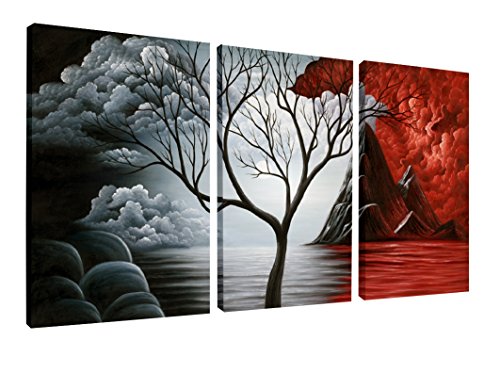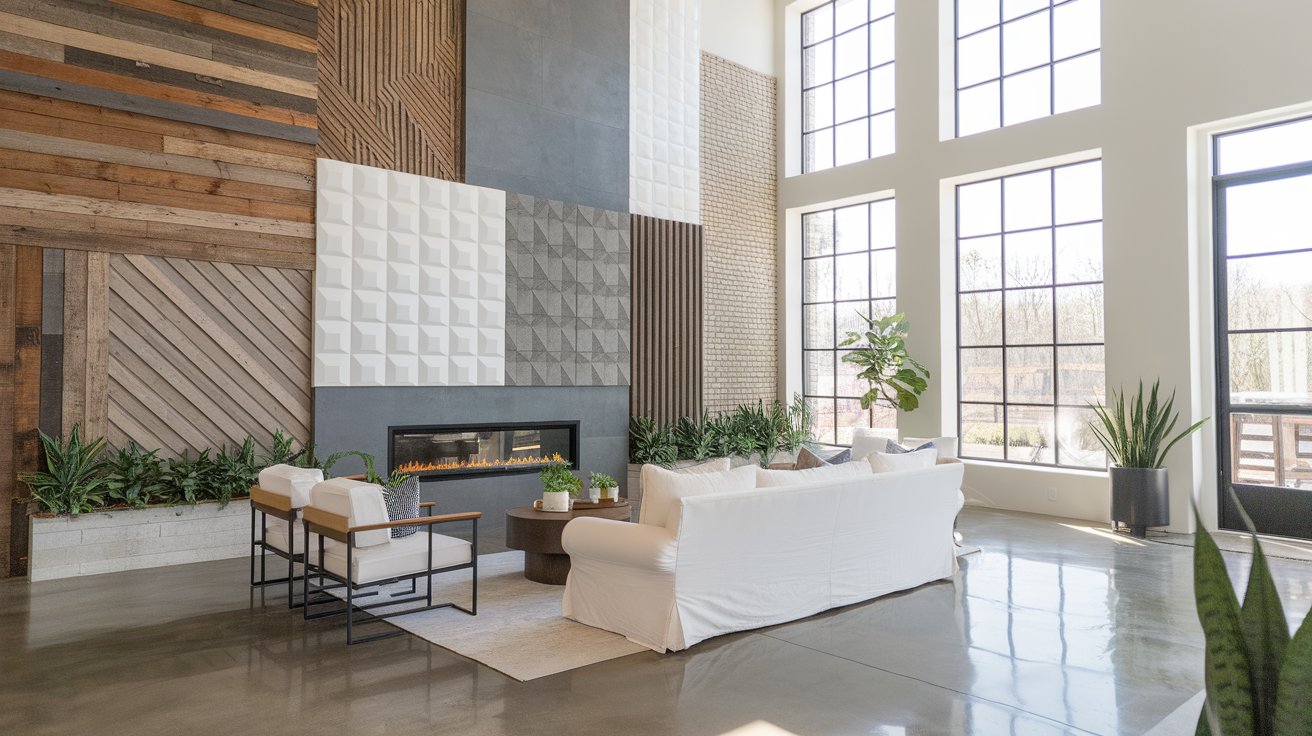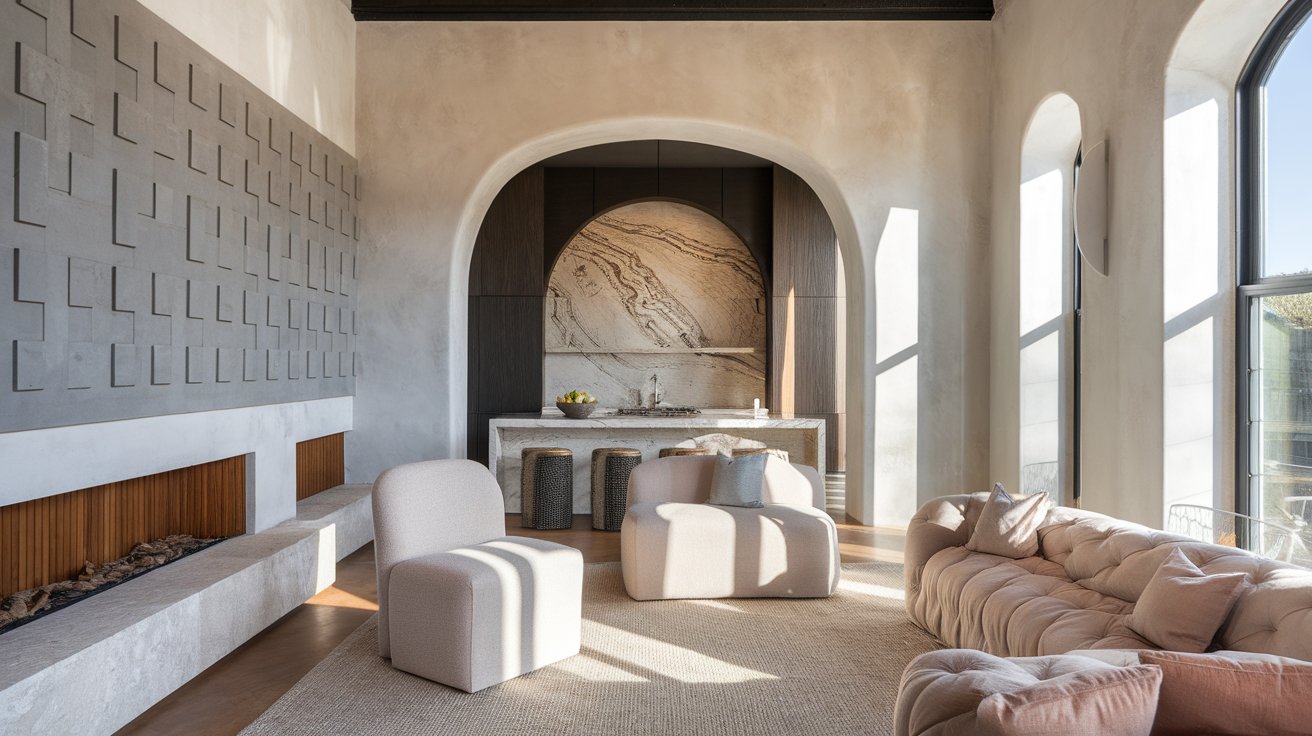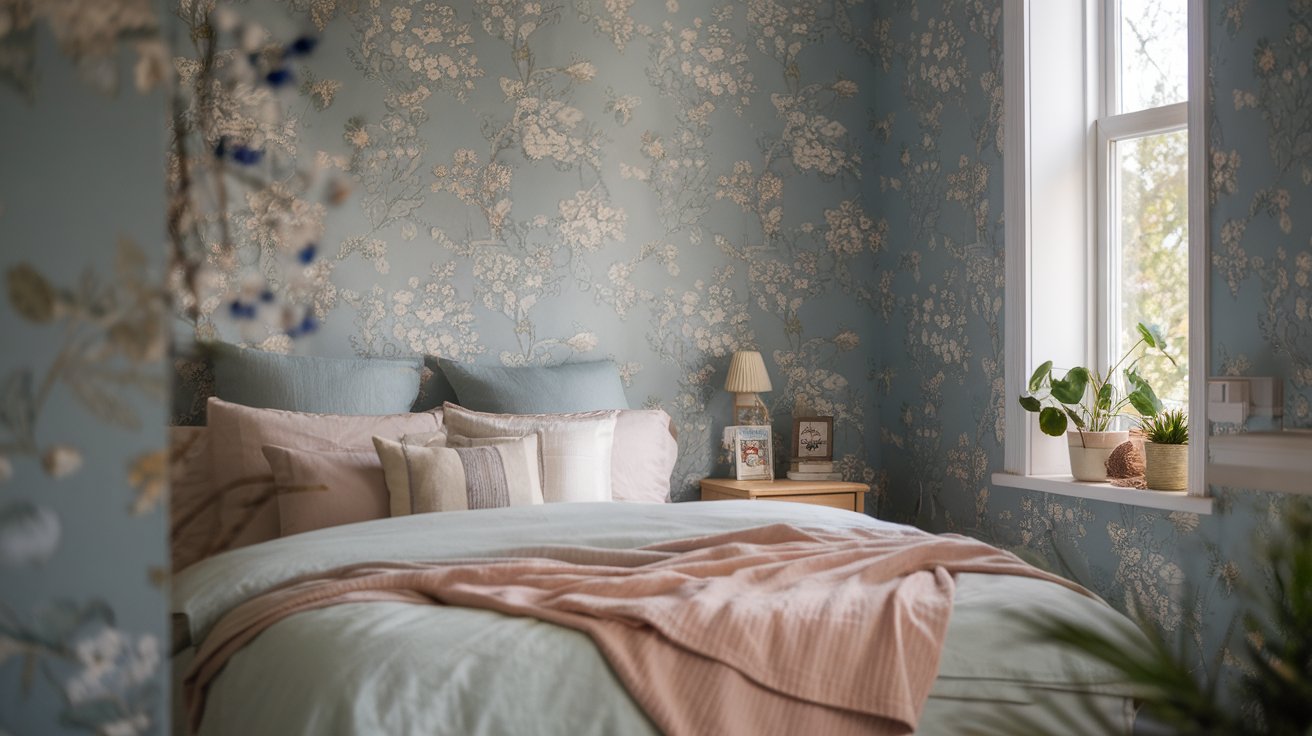Introduction
Two-tone gray walls offer a versatile and stylish solution for homeowners looking to elevate their interior design. By blending different shades of gray, you can create depth, visual interest, and a sense of sophistication in any room. Whether you’re working with a living room, bedroom, or bathroom, this approach allows for a seamless balance between modern and cozy elements. The flexibility of gray paint makes it easy to pair with various décor styles, from wooden furniture to sleek lighting fixtures. With the right combination of shades and design elements, two-tone gray walls can transform your space into a welcoming, modern retreat.
In this guide, we will explore how to choose the best shades of gray, enhance the room with complementary décor, and master lighting techniques to highlight your walls’ full potential.
Key Takeaways
- Two-tone gray walls create depth and visual interest, making any room feel modern and sophisticated.
- Choosing complementary shades of gray is essential for achieving balance and enhancing the room’s aesthetic.
- Proper lighting, including recessed lights and wall sconces, can emphasize the contrast between gray tones.
- Gray walls work beautifully with a wide range of décor styles, from wooden furniture to sleek, modern accents.
- In bedrooms, two-tone gray walls foster a serene atmosphere, perfect for relaxation and comfort.
- Natural light plays a key role in enhancing the appearance of two-tone gray walls throughout the day.
How Two Tone Gray Walls Elevate Your Home’s Interior

Two-tone gray walls are a versatile design choice that can significantly transform any room, from your kitchen to your bathroom. The contrasting gray tones add depth and visual interest, whether you’re highlighting an antique dining table or sleek cabinet designs. These walls offer inspiration for unique design ideas, including the use of marble countertops or bold wallpaper accents. In a bathroom, consider using contrasting shades on the shower walls to elevate the space. This versatile approach also works beautifully in a basement, where lighter tones can make the room feel more open. By adding the right backsplash or stylish faucet, the two-tone look can boast a sophisticated, modern aesthetic. Paired with complementary furniture and accessories, two-tone gray walls can harmonize beautifully with your existing décor, ensuring a cohesive look that feels both gorgeous and functional.
Creating Visual Focal Points with Two Tone Gray
Two-tone gray walls are excellent for creating visual focal points in a room. By using a darker shade on one wall and a lighter tone on the others, homeowners can draw attention to specific areas, such as an accent wall behind a fireplace or a feature wall in a dining room. This technique enhances architectural details like ceiling trim or wall-mounted décor, making the room appear more curated. Combining these two gray tones with complementary furniture and accessories, like gray rugs or a brass mirror, completes the look, adding warmth and depth to any space.
Adding Depth Through Color Placement
Strategically placing darker and lighter shades of gray can change the perceived size of a room. Painting the lower half of the walls with a darker shade and the upper half with a lighter one elongates the room, making it feel taller. This method works particularly well in smaller spaces like bathrooms or compact living areas. Integrating elements such as subway tiles, modern shelving, or a stylish vanity further enhances this effect, giving the room a sleek yet functional look.
Tips for Elevating Your Home’s Interior with Two Tone Gray Walls
1. Choose the Right Contrast Levels
Selecting the appropriate level of contrast between your two shades of gray is crucial. A subtle contrast can create a calm and cohesive look, while a bolder contrast adds drama and impact to the space.
2. Match Tones with Flooring and Furniture
When painting two-tone gray walls, ensure that the tones complement the flooring and furniture. Lighter gray walls pair well with dark wooden floors or furniture, while darker grays enhance light-colored furnishings for a balanced look.
3. Create Focal Points with Darker Shades
Use the darker shade of gray to create a focal point in the room. This could be an accent wall, a corner with unique architectural features, or an area behind key furniture pieces like the bed or sofa.
4. Use Neutral Accessories to Balance
Neutral-colored accessories like white or beige curtains, rugs, and cushions can provide a clean contrast to the two-tone gray walls, ensuring that the room feels balanced and not overwhelming.
5. Experiment with Textures for Added Dimension
Incorporating textured elements, such as fabric wall hangings, plush cushions, or woven rugs, can add dimension to your room, making the gray tones feel richer and more layered.
Choosing the Best Two Tone Gray for Your Living Room

Selecting the perfect shades of gray for a living room requires a balance between light and dark hues to create a welcoming yet modern space. For instance, pairing a cool light gray with a warm charcoal tone can help highlight different sections of the room, giving it a sense of depth. Complementary furniture and décor, like wooden tables and neutral-colored chairs, can tie the look together. Homeowners can also experiment with wall art, curtains, and rugs to complement the two-tone gray scheme. The versatility of gray paint allows you to adapt the style to both contemporary and classic living room designs, making it a popular choice for home renovations.
Pairing Gray Shades with Wooden Furniture
Two-tone gray walls in a living room can be beautifully complemented by warm-toned wooden furniture. Lighter gray tones can serve as a neutral backdrop, allowing darker wooden coffee tables, chairs, or shelving to stand out. The natural warmth of wood balances the coolness of the gray, creating a cozy yet modern atmosphere. Adding in soft textiles like throw pillows or rugs in complementary hues can further enhance the overall comfort and appeal of the space, making it ideal for family gatherings or relaxation.
Enhancing Room Flow with Color Transitions
Smooth transitions between the two shades of gray can help create a more fluid and open living room. By using lighter tones near windows or entryways and darker tones in more enclosed spaces, you can guide the eye through the room seamlessly. This creates a natural flow that enhances the overall layout of the living room. Pair this with well-placed wall art, neutral drapes, and sleek lighting fixtures to further highlight the two-tone gray palette while ensuring a harmonious design.
Case Study: Modern Living Room Transformation with Two Tone Gray Walls
In a recent renovation, a homeowner in New York aimed to modernize their living room by using two-tone gray walls. They chose a light, airy gray as the primary wall color, paired with a bold, charcoal gray on the accent wall behind their entertainment center. This combination not only created a sleek, modern aesthetic but also emphasized the room’s high ceilings and open floor plan.
To complement the gray tones, the homeowner selected mid-century modern furniture with walnut wood finishes and neutral fabrics. The natural warmth of the wooden furniture balanced the cool gray tones, creating a cozy yet sophisticated environment. They also used recessed lighting to highlight the darker gray accent wall, which added depth and brought focus to the room’s architectural details. The result was a modern, stylish living room that felt welcoming and harmonious.
Enhancing Bedrooms with Two Tone Gray: Comfort Meets Style

In bedrooms, two-tone gray walls create a calming and serene environment, perfect for relaxation. Light gray tones paired with deeper shades can establish a restful space that feels both intimate and modern. To further enhance the room, choose bedding and curtains that blend with the chosen gray tones. Accessories like mirrors, wall sconces, or pendant lights can add sophistication, while complementing the overall aesthetic. The combination of two shades of gray offers a sense of balance between cozy and sleek, making the bedroom a stylish haven. This design also works well with various styles, whether you prefer minimalist, contemporary, or traditional bedroom décor.
Incorporating Soft Textiles for Comfort
To enhance the serenity of two-tone gray walls in the bedroom, consider incorporating soft textiles like plush bedding, rugs, or curtains that harmonize with the wall colors. Lighter gray tones can be complemented by warm-toned throws or pillows, while darker gray walls work well with deeper shades like navy or emerald green. Soft lighting from bedside lamps or sconces adds to the relaxing ambiance, making the bedroom feel both luxurious and comfortable.
Balancing Modern and Cozy Elements
Achieving a balance between modern style and coziness is key when using two-tone gray in the bedroom. Darker grays provide a sleek, modern edge, while lighter grays maintain a more inviting atmosphere. Paired with modern furniture pieces—like a minimalist bed frame or a sleek nightstand—the space can still feel cozy with the addition of layered bedding, soft throws, and decorative pillows. Wall art and framed photos can add personal touches that tie everything together.
Gray is the perfect neutral. It goes with anything and brings out the best in surrounding colors and textures. — Bobby Berk, Interior Designer
Mastering Lighting to Accentuate Two Tone Gray Walls

Lighting plays a crucial role in maximizing the impact of two-tone gray walls. The strategic use of ambient, task, and accent lighting can emphasize the contrast between lighter and darker gray tones, giving the room a dynamic feel. Recessed lighting, for example, can bring out the depth in darker tones, while pendant lights or sconces can highlight specific areas, such as seating or reading nooks. The key is to balance functionality with aesthetics, using lighting fixtures that complement the room’s décor while enhancing the gray walls. Whether for a living room, bedroom, or bathroom, proper lighting can transform the space, elevating both style and comfort.
Optimizing Lighting for Different Gray Tones
Lighting placement is essential in accentuating the contrast between different shades of gray. Use recessed lighting to highlight darker gray walls, and pendant lights or wall sconces to illuminate lighter areas. This contrast can make the room feel dynamic, drawing attention to the interplay between light and dark tones. Installing dimmable lighting allows homeowners to adjust the mood of the room, making the space feel cozier in the evenings while keeping it bright and inviting during the day.
Using Natural Light to Highlight Wall Colors
Natural light can transform two-tone gray walls throughout the day, especially in rooms with large windows. During the day, natural light enhances the lighter tones, making the room feel airy and open, while shadows cast by furniture can deepen the darker gray tones, adding visual interest. Positioning mirrors opposite windows or using sheer curtains allows more natural light to flood the room, further emphasizing the two-tone gray palette and creating a comfortable, inviting atmosphere.
Conclusion
Two-tone gray walls are a timeless choice that can effortlessly enhance any room in your home. By carefully selecting the right shades and combining them with thoughtful décor, such as stylish furniture and complementary lighting, you can achieve a space that feels both modern and inviting. Whether you prefer a subtle contrast for a calming bedroom or a bold combination for a striking living room, this versatile design technique offers endless possibilities. The beauty of two-tone gray walls lies in their ability to adapt to various styles and atmospheres, making them a perfect choice for any homeowner looking to refresh their space.
With proper planning and attention to detail, two-tone gray walls can elevate your home’s interior, creating a visually appealing and comfortable environment that everyone will enjoy.






